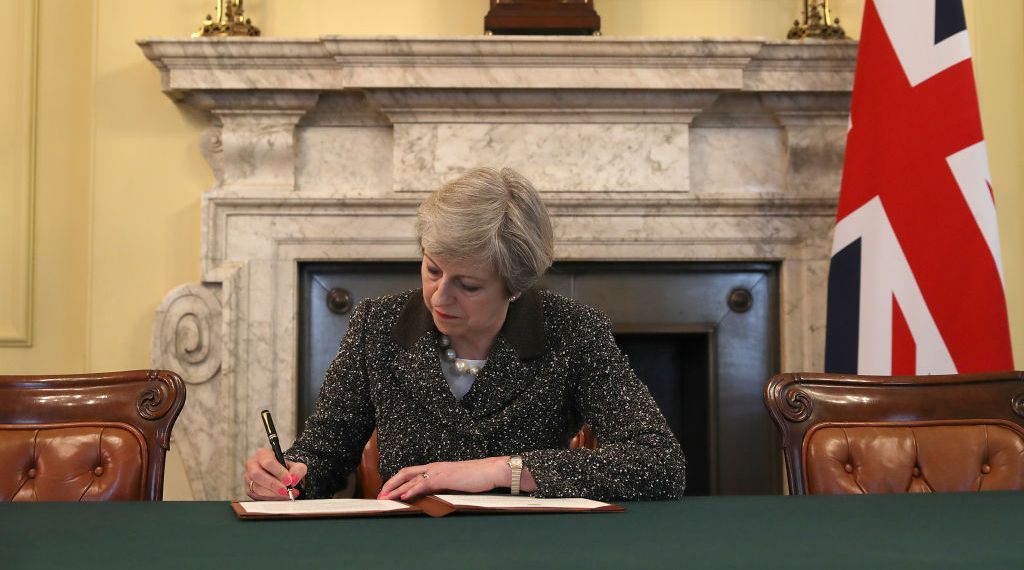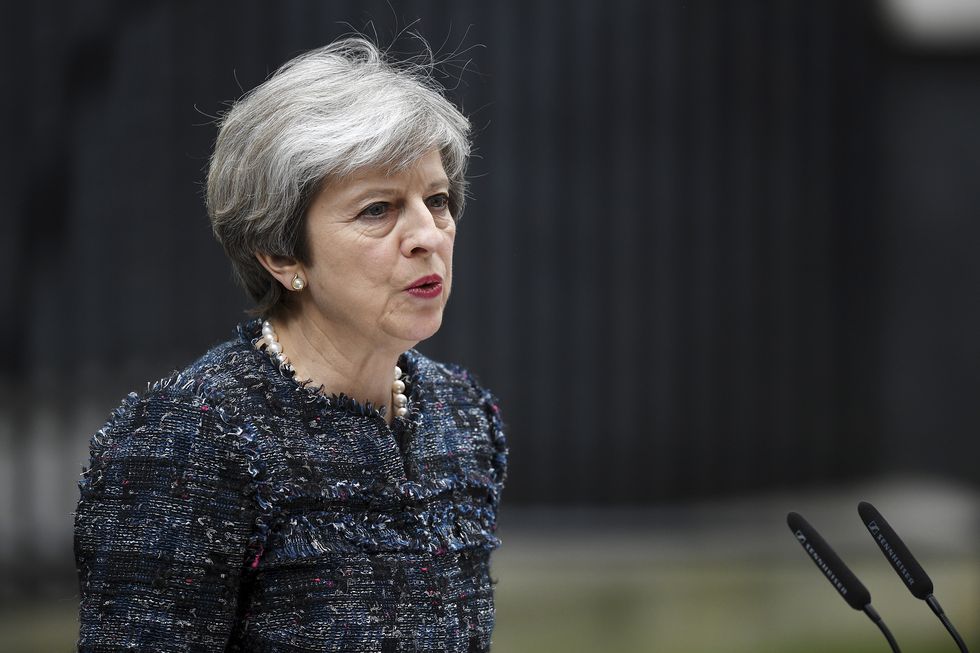Update: Over three million people have now signed the petition.
A petition calling for Theresa May to revoke Article 50 – the rule which means the UK will leave the European Union on March 29 – and remain in the EU, has gained a staggering number of signatures.
Titled 'Revoke Article 50 and remain in the EU', it's essentially calling for Parliament to cancel Brexit.
Backed by the likes of physicist Brian Cox, Huge Grant, Jennifer Saunders and singer Annie Lennox, it's growing staggeringly quickly. The Petitions Committee (a cross-party group of MPs appointed by House of Commons) tweeted that there were nearly 2,000 signatures a minute. Another tweet then confirmed the rate of signing was 'the highest the site has ever had to deal.'
At the time of writing, 2.9 million people had signed up. Petitions need 100,000 signatures to be debated in Parliament – this has long passed that threshold.
The Prime Minister, however, has ruled out stopping the Brexit process, saying: 'I do not believe that we should be revoking Article 50.'
'If you look back to what happened in the referendum, we saw the biggest democratic exercise in our history,' she told reporters in Brussels on Thursday.
Started by former college lecturer Margaret Anne Georgiadou, it first went live on 20 February. But it was pretty much ignored until Wednesday, after Theresa May’s statement from Downing Street in which she announced that she would not ask the EU for a long extension of the negotiating period.
She (somewhat controversially) blamed MPs for failing to stick to the result of the 2016 vote and told the public: 'I am on your side.'
After this, 'Revoke Article 50' started to trend on Twitter. 'It's almost like a dam bursting, because we've been held back in a sense – it's almost like last chance saloon now,' Georgiadou told the BBC.
According to Wired, yesterday morning around 180,000 signatures were being added to the petition every hour (up from 60,000 on Wednesday night).
A House of Commons spokesperson said the site crashed on Thursday morning because of 'a large and sustained load on the system'. The Committee tweeted that validation emails were taking longer than usual to get through to people's inboxes.
'The government repeatedly claims exiting the EU is ‘the will of the people’. We need to put a stop to this claim by proving the strength of public support now for remaining in the EU,' writes Georgiadou on the website. 'A People’s Vote may not happen – so vote now.'
The petition's heat map shows support for revoking Article 50 is concentrated in London and constituencies around Cambridge, Brighton, Bristol, Manchester, Oxford and Edinburgh.
Will nearly three million signatures change anything? Not likely. Petitions on the parliament website rarely lead to a change in the law. First you need to get 100,000 signature to be debated, which this one has, but the petitions committee can also reject any petition if it believes the government can't do anything about the issue anyway.
But, says the BBC's political reporter Brian Wheeler, what petitions can do is 'put an issue on the political radar - and that is what appears to have happened with the petition to revoke Article 50.'
'It was previously something of a taboo subject at Westminster. Even the most ardent anti-Brexiteers know it would be political suicide for any prime minister to overturn a referendum result without going back to the people. But some Remainer MPs are now calling on social media for the government to do just that.'
On Thursday night, after eight hours of discussion, EU leaders offered to delay Brexit until 22 May if MPs approve May's deal next week. If they do not approve it, the deadline is 12 April, at which point the UK must set out its next steps or leave without a deal.
May said MPs had a 'clear choice'.















